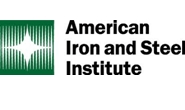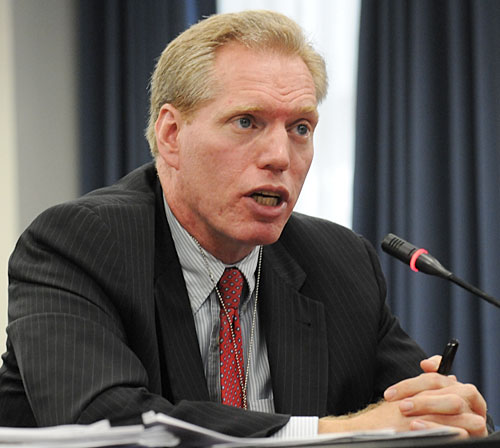Market Data

July 14, 2020
AISI to Stay the Course Under New Leadership
Written by Tim Triplett
Kevin Dempsey has taken the reins as the chief executive at the American Iron and Steel Institute at a challenging and unprecedented time. Indeed, helping AISI’s steel mill members navigate an economy hard hit by the COVID-19 pandemic is first and foremost on his agenda, he said in an interview with Steel Market Update on Monday.
 Dempsey was named AISI’s interim president and CEO last month, replacing Tom Gibson who retired after 12 years leading the steel industry trade organization. Gibson remains in an advisory role. Dempsey, a trade lawyer with extensive experience in Washington, was promoted from his role as AISI’s senior vice president for public policy and general counsel since 2009.
Dempsey was named AISI’s interim president and CEO last month, replacing Tom Gibson who retired after 12 years leading the steel industry trade organization. Gibson remains in an advisory role. Dempsey, a trade lawyer with extensive experience in Washington, was promoted from his role as AISI’s senior vice president for public policy and general counsel since 2009.
Under his leadership, Dempsey expects AISI to continue on its current path. Near the top of the institute’s agenda is promoting a new infrastructure bill and changes to state gas tax funding.
“We are advocating very strongly that Congress should get together and do its job and pass a new major reauthorization of surface transportation and water infrastructure legislation before the end of the fiscal year. We need the investment in the infrastructure, and it will boost the overall economy and be good for steel,” he said.
With people staying home to social-distance from the virus, and driving fewer miles, gas tax revenues have declined sharply. States are struggling to pay for their share of the existing highway funding, Dempsey said. “Forget about future projects, the current projects are at some risk if we don’t make sure the states have enough money to meet their cost share.”
AISI will continue to closely monitor China, Dempsey said. As the pandemic took a toll on steel demand all over the world, steel production in China actually increased by 2 percent over last year’s record production. “That’s why we think it is critical to maintain the existing Section 232 tariffs, to prevent a new surge of imports that would be devastating to the steel industry in the United States because of its vulnerable position due to the virus.”
The threat from China is growing as Chinese steel companies build mills in other parts of Southeast Asia, he added. “We always have to be mindful of changes in the international and domestic landscape. There is a constant effort at transshipment, circumvention and evasion. Until we get China out of a nonmarket, government-driven economic system for steel, we will have these distortions that lead to problems throughout the economy. We will continue to work to make sure we have strong trade tools to address that.”
AISI also will continue to focus on sustainability and the progress the steel industry has made in reducing its carbon footprint. It will continue to work with automakers to develop new grades of advanced high-strength steels they can use to make vehicles lighter and more fuel efficient. And it will make sure members have the latest information on how to operate their mills as safely as possible for employees and customers during the pandemic.
Dempsey does not believe a possible change of presidential administration in November would affect AISI’s trade mission. “We have no idea what will happen in terms of the election, but we will be making the case to both campaigns that the current situation justifies continuing the existing trade policies for steel. I am optimistic we will see Section 232 stay in place regardless of the outcome of the election. There has been bipartisan support for the need to address global steel overcapacity, and I don’t think that will change.”







